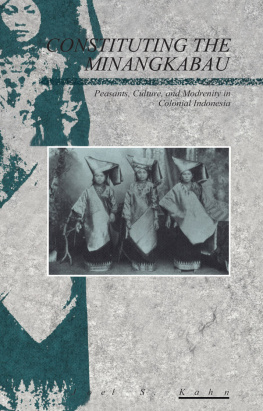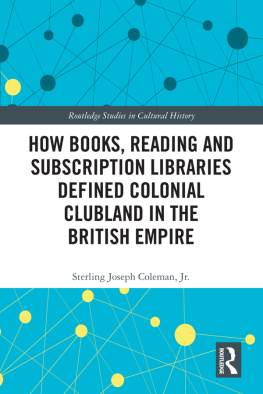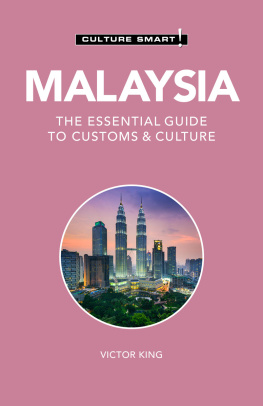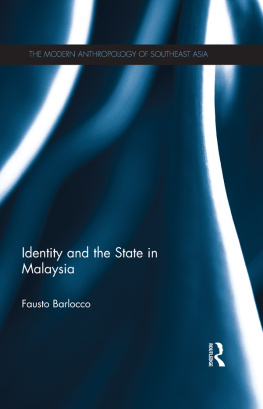A Rainforest Asylum:
The enduring legacy of colonial psychiatric care in Malaysia
Critical Studies
in Socio-Cultural Diversity
Editor-in-Chief: Dr Sara Ashencaen Crabtree
Current and future titles in the same series
Practice Research in Nordic Social Work:
Knowledge production in transition
Edgar Marthinsen and Ilse Julkunen
The Cup, The Gun and The Crescent:
Social welfare and civil unrest in Muslim societies
Sara Ashencaen Crabtree, Jonathan Parker & Azlinda Azman
Active ageing?
Perspectives from Europe on a vaunted topic
Mara Luisa Gmez Jimnez, and Jonathan Parker (Editors)
Men and Masculinities in Europe (2nd edition)
Keith Pringle, Jeff Hearn, Harry Ferguson, Dimitar Kambourov,
Voldemar Kolga, Emmi Lattu, Ursula Mller, Marie Nordberg, Irina
Novikova, Elzbieta Oleksy, Joanna Rydzewska (Editors)
A Rainforest Asylum
The enduring legacy of colonial
psychiatric care in Malaysia
Sara Ashencaen Crabtree
Whiting & Birch
MMXII
Whiting & Birch Ltd 2012
Published by Whiting & Birch Ltd,
Forest Hill, London SE23 3HZ
ISBN (print) 9781861771285
ISBN (ebook) 9781861770813
Printed in England and the United States by Lightning Source
With love and gratitude to those constant
lodestars by which my craft was steered:
Jonathan Parker, mi alma gemela
and Jack Crabtree, the Magus.
Contents
Preface
Probably when most people think of an ethnographic study of the people of East Malaysia, incorporating the two Malaysian states on the island of Borneo, they are more likely to think in terms of colourful cultural studies of indigenous folk struggling to maintain traditional lifestyles in the face of rampant industrialisation and consumerism. Or some equally emotive social issue such as this. Unsurprisingly, and fortunately, there are consequently many such noteworthy ethnographic accounts that chart change among rural communities in this region.
This study is somewhat different: in that although it focuses on the lives of certain Malaysian citizens of many ethnic backgrounds, pitted against what seems at times to be impersonal and oppressive forces, the context is far removed from the pastoral or the traditional. It is one, however, that has deep roots in Malaysian society and therefore forms the essential framework of this study.
These experiences have been gathered into a series of accounts from those individuals, who were then, and often still are, psychiatric patients living in long-term institutional care. The words of both sexes are encapsulated here; which is of particular importance as the narratives of psychiatric patients in Malaysia are rarely heard, and especially the voices of Malaysian women under this form of duress virtually unknown.
Significantly, it is argued that the context of Malaysian psychiatric institutional care is not inherently premised on indigenous needs and practices but is an uprooted, transplanted and anachronistic creation of another culture, from another time, for other purposes, based on assumptions and beliefs that have not survived intact from its own place of origin. Despite these anomalies however, the institution continues unscathed in Malaysia with no real sign of becoming obsolete or refashioned in this post-colonial nation despite the changes that are generally taking place in psychiatric services globally. Such paradoxes and the lived experiences of those patients accordingly form the theme of this book.
Acknowledgements
I have many people to thank on the long road towards the completion of this book, a large number of whom, being participants in this study, must sadly remain unnamed. However, those to whom I can give public thanks include my doctoral supervisor Dr Roger Green of the University of Hertfordshire, whose methodological incisiveness and acerbic wit served to pull me back onto the right track when faced with a jungle of enticing alternative paths. Many thanks also to Dr Lau Kim Kah who provided additional supervisory expertise and held the key to many an otherwise locked vault of hidden knowledge. Mick Bowman of the Sarawak Mental Health Association offered numerous invaluable insights into psychiatric care in the region. My long-suffering comrades Gabriel Chong and Dr Hew Cheng Sim ironed out logistical problems more than once with their practical know-how. My three final-year social work students Chan Soak Fong, Pek Wooi Ling and Jessing Ak Awos supplied able assistance through their professional translation skills and enthusiasm for the study. Thanks are additionally due to Dr Ann Appleton who kindly assisted me to update my knowledge in 2009 when other sources ran dry. Further thanks are due to Professor Shula Ramon in her capacity as critical friend. Finally, great debts of gratitude are owed to my late spouse and raconteur par excellence Professor Jack Crabtree for his consistent faith and keen editorial eye; and to my husband Professor Jonathan Parker for taking up the mantle of academic mentor, advisor and faithful helpmate. Finally, I would like to thank and commend my publisher David Whiting for all his advice and support.
Introduction
In 1996, fresh from university studies, I was delighted to leave a wintry Britain to take up my first academic post in Malaysia a compellingly fascinating region. My first experience of Malaysia was the congested capital city of Kuala Lumpur, where bristling, hyper-modern skyscrapers towered over the more sedate, colonial villas and municipal landmarks, thus defying many of my more outdated notions of the city. Finally, I arrived in Sarawak, East Malaysia, which I found both beautiful and sufficiently steeped in a polymorphous and multifaceted heritage to satisfy my romantic instincts and where I lived very happily for the next five years. Settling in at the local university I subsequently learned probably as much from my friendly, multicultural Malaysian students as I taught them of the social sciences.
At some point during those first exciting, confusing and frenetic months of orientation I became aware of the existence of a discreetly located psychiatric hospital built some sixty or so years earlier. I had long been interested in mental health issues and resolved to learn more about mental health provision in this area at the first opportunity. As I settled into my new life, it became apparent that the hospital had been virtually untouched by previous external research, and yet appeared to offer an intriguing picture of post-colonial psychiatric care that invited closer attention.
After making some initial overtures to the hospital authorities, I was eventually sufficiently privileged to be permitted to carry out a series of research studies at the hospital, which for the purposes of confidentiality, whilst trying to remain true to the appellations of many psychiatric hospitals in Malaysia, I have duly called Hospital Tranquillity. This book, the culmination of my research studies there, represents a pioneering experience for me in view of the dearth of research activities taking place on such topics regionally.
Moreover, the few studies undertaken on mental health issues in Malaysia have mostly been scientifically based. Therefore, being quantitative in methodology, they have not focused upon subjective experiences, particularly those of psychiatric patients, which incontestably formed a serious deficit in our understanding of mental health phenomena. A gap in the literature, therefore, was evident. Thus the study, after duly negotiating logistical problems and the potential quagmires of ethics committees, commenced in 1997. Reaching a zenith in the new millennium, it was periodically dusted down in the intervening years. Now fully revived and revised, this ethnography offers an account of the lives of both patients and staff in a post-colonial psychiatric institution in Malaysia. In so doing it has drawn from a particularly influential well of knowledge the surge of interest by historians in colonial psychiatry which has illuminated many of the phenomena noted in this study; and which may be seen to make its own tangential contribution to our dislocated understandings of historically situated care.







